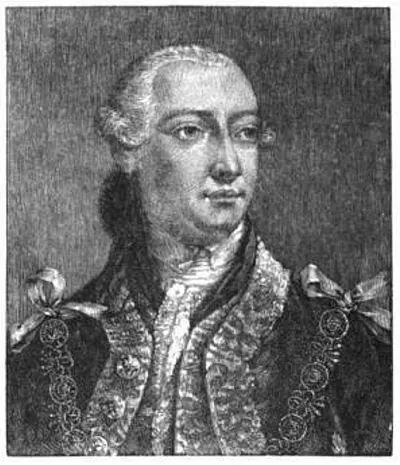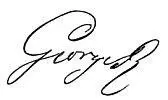John Fiske - The American Revolution
Здесь есть возможность читать онлайн «John Fiske - The American Revolution» — ознакомительный отрывок электронной книги совершенно бесплатно, а после прочтения отрывка купить полную версию. В некоторых случаях можно слушать аудио, скачать через торрент в формате fb2 и присутствует краткое содержание. Жанр: История, foreign_antique, foreign_prose, на английском языке. Описание произведения, (предисловие) а так же отзывы посетителей доступны на портале библиотеки ЛибКат.
- Название:The American Revolution
- Автор:
- Жанр:
- Год:неизвестен
- ISBN:нет данных
- Рейтинг книги:4 / 5. Голосов: 1
-
Избранное:Добавить в избранное
- Отзывы:
-
Ваша оценка:
- 80
- 1
- 2
- 3
- 4
- 5
The American Revolution: краткое содержание, описание и аннотация
Предлагаем к чтению аннотацию, описание, краткое содержание или предисловие (зависит от того, что написал сам автор книги «The American Revolution»). Если вы не нашли необходимую информацию о книге — напишите в комментариях, мы постараемся отыскать её.
The American Revolution — читать онлайн ознакомительный отрывок
Ниже представлен текст книги, разбитый по страницам. Система сохранения места последней прочитанной страницы, позволяет с удобством читать онлайн бесплатно книгу «The American Revolution», без необходимости каждый раз заново искать на чём Вы остановились. Поставьте закладку, и сможете в любой момент перейти на страницу, на которой закончили чтение.
Интервал:
Закладка:
In the eighteenth century, no such exhibition of good sense and good feeling, in the interest of political justice, could have been expected from any European statesman, unless from a Turgot or a Chatham. But Charles Townshend was not even called upon to exercise any such self-control. Had he simply taken Alderman Beckford’s advice, and done nothing, all would have been well; but his meddling had now put the government into a position which it was ruinous to maintain, but from which it was difficult to retreat. American tradition rightly lays the chief blame for the troubles which brought on the Revolutionary War to George III.; but, in fairness, it is well to remember that he did not suggest Townshend’s measures, though he zealously adopted and cherished them when once propounded. The blame for wantonly throwing the apple of discord belongs to Townshend more than to any one else.
After doing this, within three months from the time his bill had passed the House of Commons, Townshend was seized with a fever and died at the age of forty-one. A man of extraordinary gifts, but without a trace of earnest moral conviction, he had entered upon a splendid career; but his insincere nature, which turned everything into jest, had stamped itself upon his work. He bequeathed to his country nothing but the quarrel which was soon to deprive her of the grandest part of that empire upon which the sun shall never set.

GEORGE III
If Townshend’s immediate object in originating these measures was to curry favour with George III., and get the lion’s share in the disposal of the king’s ample corruption-fund, he had doubtless gone to work in the right way.
The king was delighted with Townshend’s measures, and after the sudden death of his minister he made them his own, and staked his whole political career as a monarch upon their success. These measures were the fatal legacy which the brighter political charlatan left to the duller political fanatic. The fierce persistency with which George now sought to force Townshend’s measures upon the Americans partook of the nature of fanaticism, and we shall not understand it unless we bear in mind the state of political parties in England between 1760 and 1784. When George III. came to the throne, in 1760, England had been governed for more than half a century by the great Whig families which had been brought into the foreground by the revolution of 1688. The Tories had been utterly discredited and cast out of political life by reason of their willingness to conspire with the Stuart pretenders in disturbing the peace of the country. Cabinet government, in its modern form, had begun to grow up during the long and prosperous administration of Sir Robert Walpole, who was the first English prime minister in the full sense. Under Walpole’s wise and powerful sway, the first two Georges had possessed scarcely more than the shadow of sovereignty. It was the third George’s ambition to become a real king, like the king of France or the king of Spain. From earliest babyhood, his mother had forever been impressing upon him the precept, ”George, be king!” and this simple lesson had constituted pretty much the whole of his education.
Popular tradition regards him as the most ignorant king that ever sat upon the English throne; and so far as general culture is concerned, this opinion is undoubtedly correct. He used to wonder what people could find to admire in such a wretched driveller as Shakespeare, and he never was capable of understanding any problem which required the slightest trace of imagination or of generalizing power. Nevertheless, the popular American tradition undoubtedly errs in exaggerating his stupidity and laying too little stress upon the worst side of his character. George III. was not destitute of a certain kind of ability, which often gets highly rated in this not too clear-sighted world. He could see an immediate end very distinctly, and acquired considerable power from the dogged industry with which he pursued it.

In an age when some of the noblest English statesmen drank their gallon of strong wine daily, or sat late at the gambling-table, or lived in scarcely hidden concubinage, George III. was decorous in personal habits and pure in domestic relations, and no banker’s clerk in London applied himself to the details of business more industriously than he. He had a genuine talent for administration, and he devoted this talent most assiduously to selfish ends. Scantily endowed with human sympathy, and almost boorishly stiff in his ordinary unstudied manner, he could be smooth as oil whenever he liked. He was an adept in gaining men’s confidence by a show of interest, and securing their aid by dint of fair promises; and when he found them of no further use, he could turn them adrift with wanton insult. Any one who dared to disagree with him upon even the slightest point of policy he straightway regarded as a natural enemy, and pursued him ever afterward with vindictive hatred. As a natural consequence, he surrounded himself with weak and short-sighted advisers, and toward all statesmen of broad views and independent character he nursed the bitterest rancour. He had little faith in human honour or rectitude, and in pursuing an end he was seldom deterred by scruples.
Such was the man who, on coming to the throne in 1760, had it for his first and chiefest thought to break down the growing system of cabinet government in England. For the moment circumstances seemed to favour him. The ascendancy of the great Whig families was endangered on two sides. On the one hand, the Tory party had outlived that idle, romantic love for the Stuarts upon which it found it impossible to thrive.
The Tories began coming to court again, and they gave the new king all the benefit of their superstitious theories of high prerogative and divine right. On the other hand, a strong popular feeling was beginning to grow up against parliamentary government as conducted by the old Whig families. The House of Commons no longer fairly represented the people. Ancient boroughs, which possessed but a handful of population, or, like Old Sarum, had no inhabitants at all, still sent their representatives to Parliament, while great cities of recent growth, such as Birmingham and Leeds, were unrepresented. To a great extent, it was the most progressive parts of the kingdom which were thus excluded from a share in the government, while the rotten boroughs were disposed of by secret lobbying, or even by open bargain and sale. A few Whig families, the heads of which sat in the House of Lords, thus virtually owned a considerable part of the House of Commons; and, under such circumstances, it was not at all strange that Parliament should sometimes, as in the Wilkes case, array itself in flat opposition to the will of the people. The only wonder is that there were not more such scandals. The party of “Old Whigs,” numbering in its ranks some of the ablest and most patriotic men in England, was contented with this state of things, upon which it had thrived for two generations, and could not be made to understand the iniquity of it, – any more than an old cut-and-dried American politician in our time can be made to understand the iniquity of the “spoils system.” Of this party the Marquis of Rockingham was the political leader, and Edmund Burke was the great representative statesman. In strong opposition to the Old Whig policy there had grown up the party of New Whigs, bent upon bringing about some measure of parliamentary reform, whereby the House of Commons might truly represent the people of Great Britain. In Parliament this party was small in numbers, but weighty in character, and at its head was the greatest Englishman of the eighteenth century, the elder William Pitt, under whose guidance England had won her Indian empire and established her dominion over the seas, while she had driven the French from America, and enabled Frederick the Great to lay the foundations of modern Germany.
Читать дальшеИнтервал:
Закладка:
Похожие книги на «The American Revolution»
Представляем Вашему вниманию похожие книги на «The American Revolution» списком для выбора. Мы отобрали схожую по названию и смыслу литературу в надежде предоставить читателям больше вариантов отыскать новые, интересные, ещё непрочитанные произведения.
Обсуждение, отзывы о книге «The American Revolution» и просто собственные мнения читателей. Оставьте ваши комментарии, напишите, что Вы думаете о произведении, его смысле или главных героях. Укажите что конкретно понравилось, а что нет, и почему Вы так считаете.












